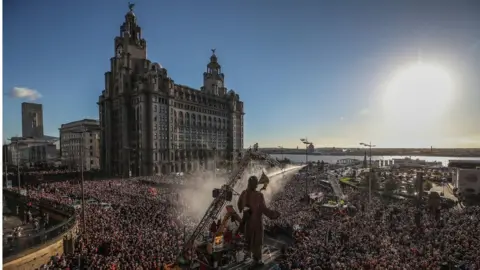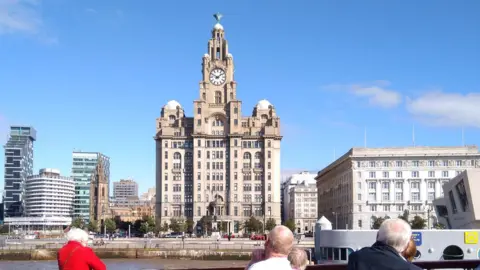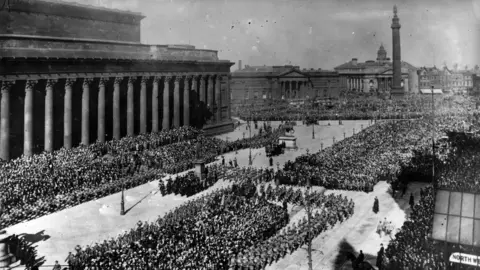Fears Liverpool may lose World Heritage status
 PA
PANearly 30 figures from politics, football and academia have signed a letter urging Unesco not to strip Liverpool of its World Heritage status.
The threat of demotion has rumbled on for more than a decade after modern developments on the city's waterfront.
There are concerns the World Heritage committee will recommend that the city should lose the status in a Unesco report expected on Monday.
Regional mayor Steve Rotheram is among those who said it would be a "setback".

Liverpool was granted the highly sought-after World Heritage status from the international cultural organisation Unesco in 2004.
The accolade recognises the city's history as a major trading centre during the British Empire and its architectural landmarks.
Unesco will confirm the sites on its World Heritage List in a meeting this July.

Liverpool's heritage
 Getty Images
Getty Images- The World Heritage Site stretches from the city's famous waterfront, through the historic commercial districts, to St George's Hall.
- The city's bid was centred on its history as a major global port in the 18th and 19th Centuries, when it played a significant role in the growth of the British Empire.
- It was a hub for the mass movement of people, including migrants from Europe to America, and had a key role in the transatlantic slave trade.
- The Albert Dock area features more Grade I-listed buildings than anywhere else in the UK.
- Liverpool is one of 32 World Heritage Sites in the UK, along with Stonehenge and the Giant's Causeway.

On Saturday, figures including ex-politician Michael Heseltine, playwright Willy Russell and the chief executives of Liverpool and Everton football clubs signed a letter published in The Times, saying the city was in a "far superior state than when the status was granted".
They said about £1.6bn had been invested in upgrading 157 heritage assets.
 Everton FC
Everton FCThe letter also said the forthcoming £500m Everton stadium in Bramley-Moore Dock - in one of the city's poorest areas - would "bring millions of people to the shores of the Mersey", where they would also learn about "the city's and Britain's maritime past".
However, the stadium plans were initially objected to by heritage body ICOMOS, acting on behalf of Unesco, as well as the Victorian Society and Historic England.
In March, the Ministry of Housing, Communities and Local Government said it had "decided not to intervene".
The letter's signatories urged World Heritage Committee members to "defer any decision on the city's status and, instead, accept an invitation to visit Liverpool at some point during the next 12 months".
"We hope they see, like us, that Liverpool's World Heritage Site should be shown up as an exemplar of best practice in heritage-led regeneration."

Why not follow BBC North West on Facebook, Twitter and Instagram? You can also send story ideas to [email protected]
